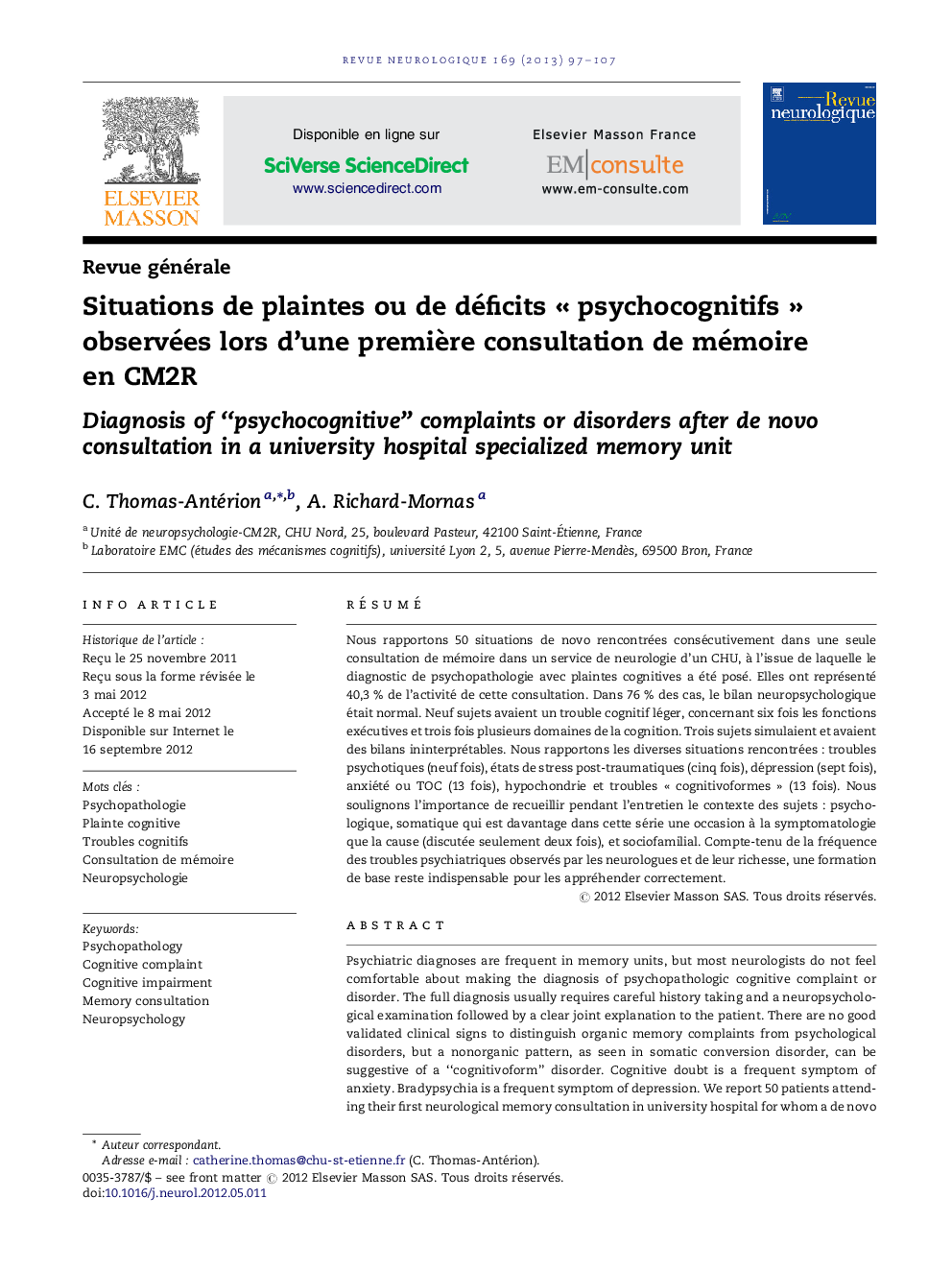| کد مقاله | کد نشریه | سال انتشار | مقاله انگلیسی | نسخه تمام متن |
|---|---|---|---|---|
| 3088227 | 1190176 | 2013 | 11 صفحه PDF | دانلود رایگان |
عنوان انگلیسی مقاله ISI
Situations de plaintes ou de déficits « psychocognitifs » observées lors d'une première consultation de mémoire en CM2R
دانلود مقاله + سفارش ترجمه
دانلود مقاله ISI انگلیسی
رایگان برای ایرانیان
کلمات کلیدی
موضوعات مرتبط
علوم زیستی و بیوفناوری
علم عصب شناسی
عصب شناسی
پیش نمایش صفحه اول مقاله

چکیده انگلیسی
Psychiatric diagnoses are frequent in memory units, but most neurologists do not feel comfortable about making the diagnosis of psychopathologic cognitive complaint or disorder. The full diagnosis usually requires careful history taking and a neuropsychological examination followed by a clear joint explanation to the patient. There are no good validated clinical signs to distinguish organic memory complaints from psychological disorders, but a nonorganic pattern, as seen in somatic conversion disorder, can be suggestive of a “cognitivoform” disorder. Cognitive doubt is a frequent symptom of anxiety. Bradypsychia is a frequent symptom of depression. We report 50 patients attending their first neurological memory consultation in university hospital for whom a de novo diagnosis of psychopathologic disorder was established on the basis of the clinical setting, observation, examination and neuropsychological tests. These psychopathologic disorders accounted for 40.3% of first-consultation diagnoses. In 76% of cases, the neuropsychological examination was normal. Nine subjects had mild cognitive impairment, concerning executive functions in six and several domains in three. Simulation with atypical neuropsychological pattern was distinguished in three patients. The diagnoses were:psychosis (n = 9), traumatic stress (n = 5), depression (n = 7), anxiety or obsession/compulsion (n = 13), hypochondria and “cognitivoform” disorders (n = 13). In this study, few patients consulted with a known psychiatric diagnosis. Psychiatric co-morbidity was common. In the memory unit, listening carefully to ascertain the psychic, somatic and social situation of each individual patient appears to be as important as evaluating cognition. The neurologist can rule out organic disorders or an exaggeration of somatic symptoms and determine the precise etiology in order to build a rationale for treatment. The neurologist can also avert an overconsumption of complementary explorations. In conclusion, this study shows first that psychopathologic disorders are commonly encountered in a neurological memory unit, emphasizing the need for training for the neurologist and collaboration with a psychiatrist, and secondly that the role of the memory unit cannot be limited to the diagnosis of Alzheimer's disease.
ناشر
Database: Elsevier - ScienceDirect (ساینس دایرکت)
Journal: Revue Neurologique - Volume 169, Issue 2, February 2013, Pages 97-107
Journal: Revue Neurologique - Volume 169, Issue 2, February 2013, Pages 97-107
نویسندگان
C. Thomas-Antérion, A. Richard-Mornas,